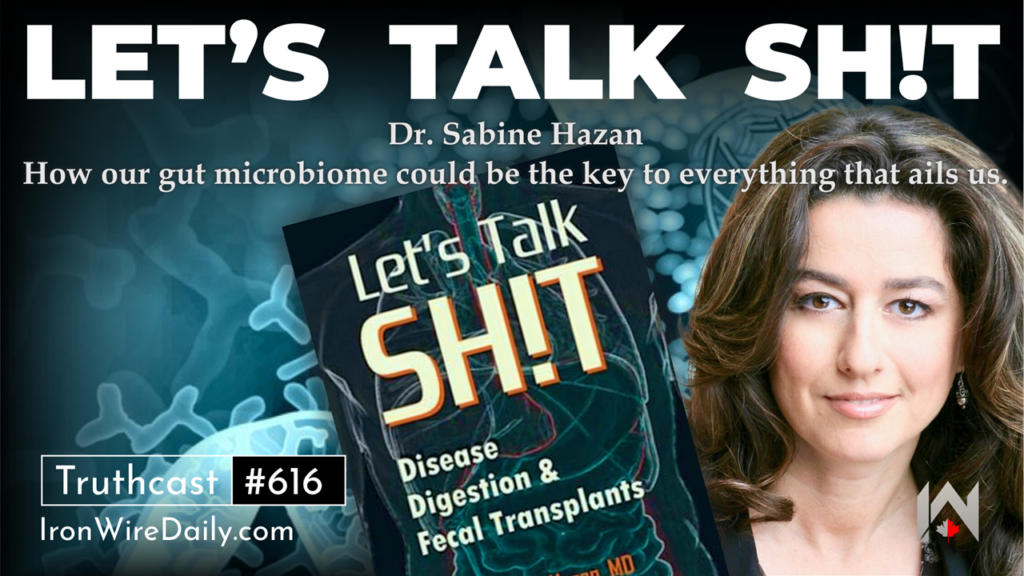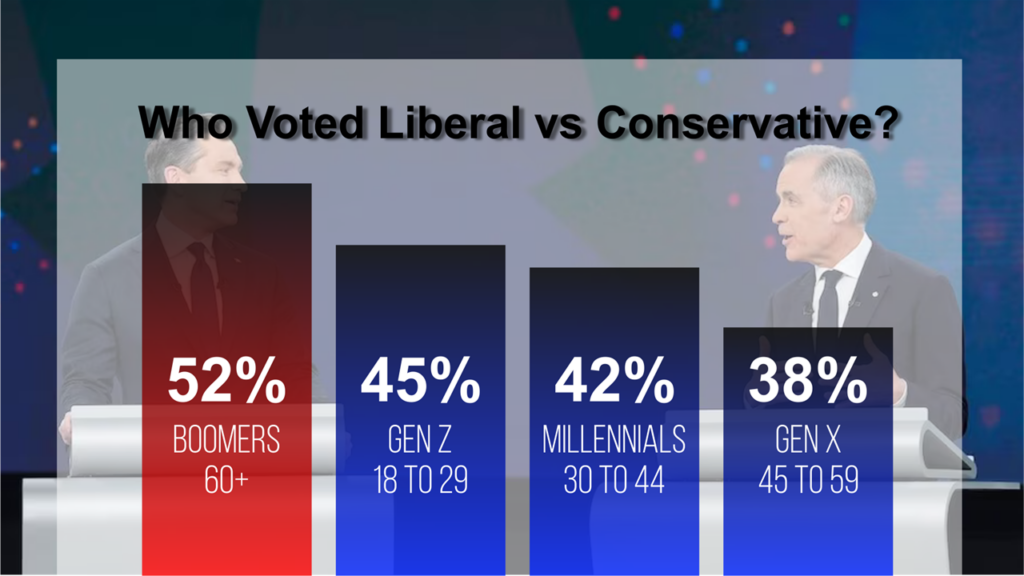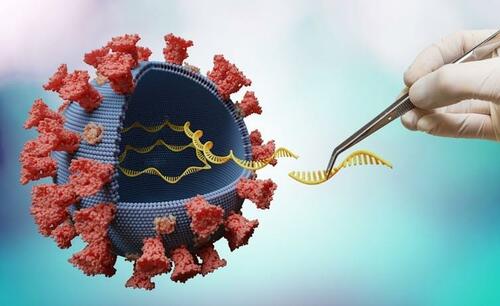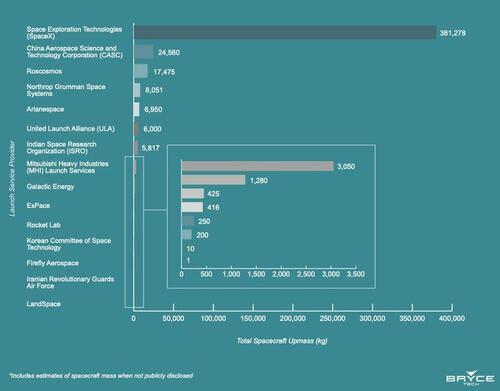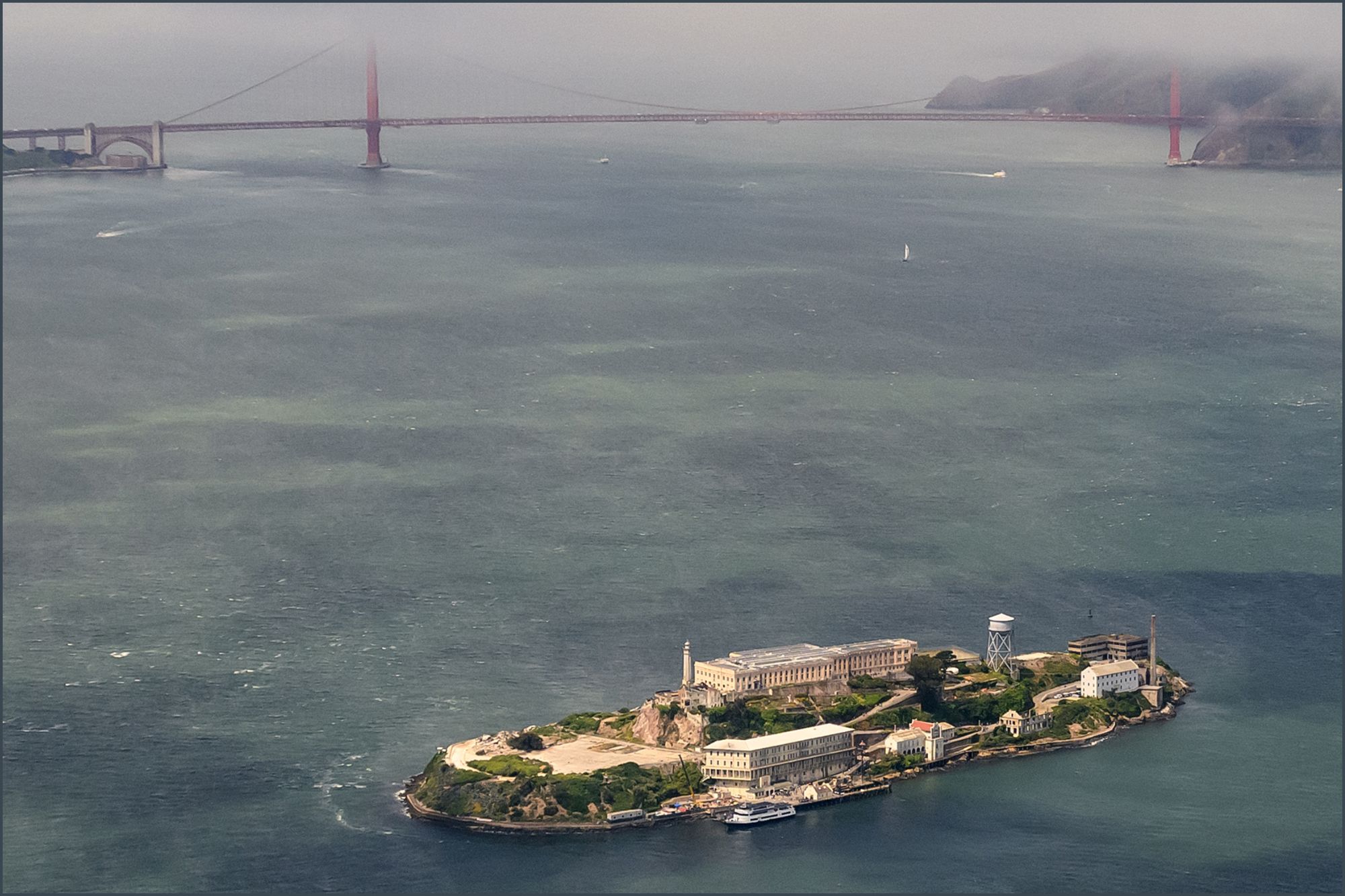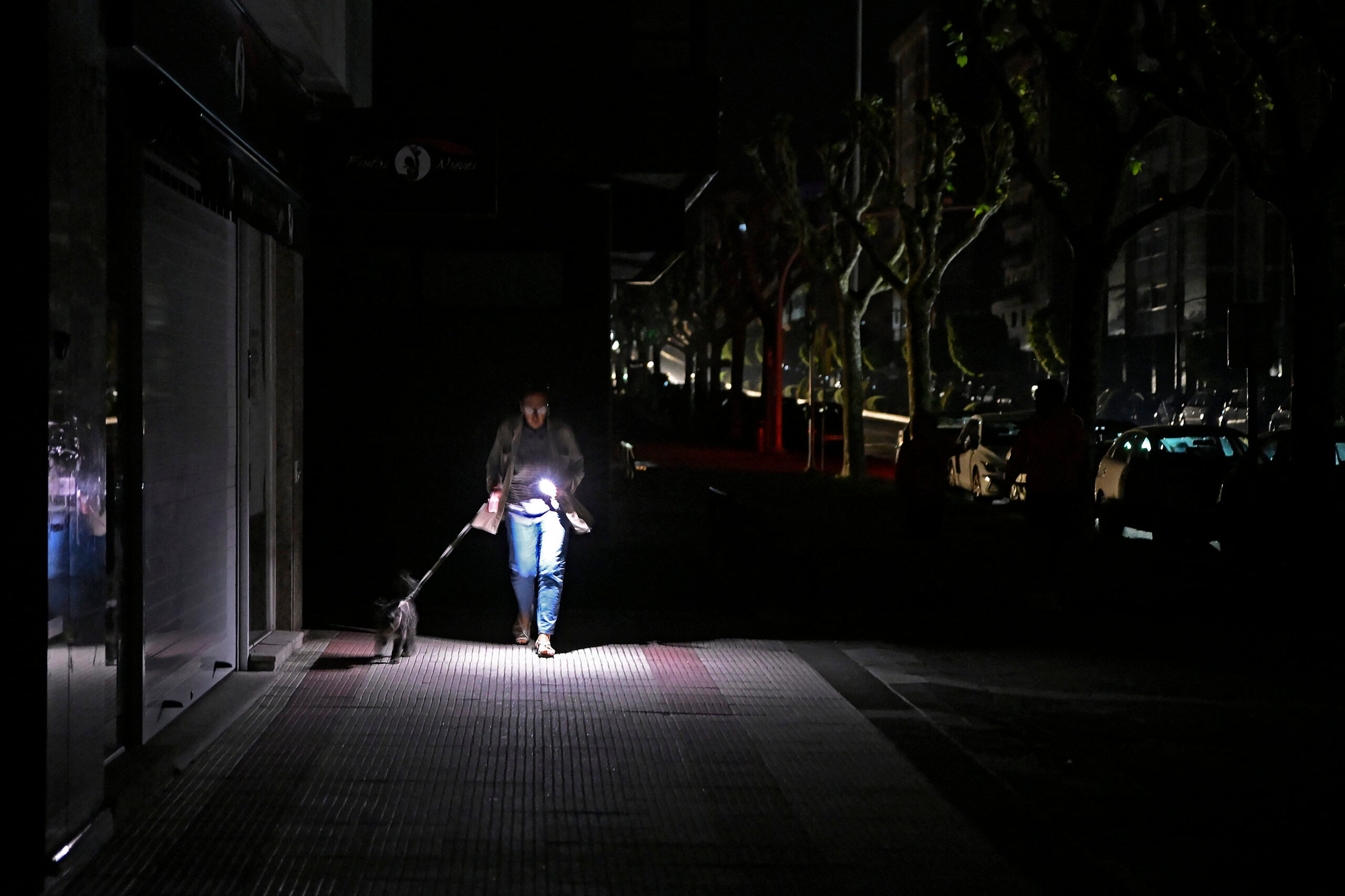What Makes Us Sick: Our Toxic Environment
Dr. Rob Verkerk
In this, Part 2 of my exhaustive interview with multi-disciplinary scientist Dr. Rob Verkerk, Rob and I discuss the broader implications of big pharma interventions, and the widespread acceptance of a narrow viewpoint that focuses entirely on viruses as disease vectors, when in fact they are much more than that.
We as a society are being conditioned to view dirt as dangerous, germs as potential killers, and pharmaceutical interventions and an obsession with cleanliness to the point of sterilization as the only path to protecting ourselves from illness.
Many of you are aware that the extensive use of hand sanitizers likely only creates more virulent microbes, while putting toxic chemicals in our bodies.
But even that is only one small part of the problem.
When we put out naturally occurring forest fires, we prevent soil renewal, the cleaning of organically exhausted detritus from the forest floor, and cause choking out of lower canopy growth as well as creating an ideal environment for parasites. The result is a forest that is so sick, that the next lightning strike ignites a catastrophic fire that we can’t put out, no matter how much manpower and resources we throw at it.
Rob believes we are doing the same to our biosphere. Not in the way that the radical environmentalists and global warming doomsayers believe, but in ways that are far more insidious, and potentially much more catastrophic.
mRNA vaccines that essentially act as retroviruses, rewriting human and animal DNA with results that cannot possibly be predicted. The introduction of toxic chemicals into the soil, destroying biodiversity. Genetically modified food that can wipe out it’s natural ancestor or competitors, upsetting the ecological balance. Electromagnetic radiation that may have a host of detrimental effects on biological organisms, and not just humans. And most recently, CRISPR gene editing technology and AI gene engineering tools in the hands of amateurs who have no idea of what they are playing with.
If we continue on this path, an ecological disaster seems almost certain. Not necessarily one caused by globalist machinations, although that will certainly be a contributing factor. And if it happens, if we see our entire biosphere beginning to crumble, what will it look like, how bad could it be, and how can we prevent it.
Auto-Generated Transcript In this, part two of my exhaustive interview with multidisciplinary scientist Dr. Rob Verkirk, Rob and I discussed the broader implications of big pharma interventions, and the widespread acceptance of a narrow viewpoint that focuses entirely on viruses as disease vectors, when in fact they are much more than that. We as a society are being conditioned to view dirt as dangerous, germs as potential killers percent, pharmaceutical intervention. at an obsession with fungeliness to the point of sterilization as the only path to protecting ourselves from illness. Many of you are aware that the extensive use of hand sanitizers, for example, likely only creates more virulent microbes while putting toxic chemicals in our bodies. But even that is only one small part of the problem. When we put out naturally a career forest fires, we prevent soil renewal. The cleaning of organically -exhausted detritus from the forest floored caused choking out of lower canopy growth as well as creating an ideal environment for parasites. The result is a forest that is so sick that the next lightning strike ignites a catastrophic fire that we can't put out, no matter how much manpower resources we throw at it. Rob believes we are doing the same to our biosphere, not in the way that the radical environmentalists and global warming doomsayers believe, but in ways that are far more insidious and potentially much more catastrophic. mRNA vaccines that essentially act as retroviruses, rewriting human and animal DNA with results that can't possibly be predicted. The introduction of toxic chemicals into the soil, destroying biodiversity. Genetically modified food that can wipe out its natural ancestor or competitors, upsetting the ecological balance. Electromagnetic radiation that may have a host of detrimental effects on biological organisms, not just humans. And most recently, CRISPR gene editing technology and AI gene engineering tools in the hands of amateurs who have no idea what they're playing with. If we continue on this path, an ecological disaster seems almost certain. Not necessarily one caused by globalist machinations, though that will certainly be a contributing factor. factor. And if it happens, if we see our entire biosphere getting to crumble, what will it look like? How bad could it be? And how can we prevent it? The rather honest thank you because I think we've done a very good job, or rather you'd have, of verifying this argument of first first of all, framing it well and making it clear that it's much bigger than just these two opposing camps. And we have to see it within that much bigger framework, but also of addressing the viewpoints of each side and doing so in a very fair -minded manner. So at this point in time, I want to take the interview in a different direction and access your extensive scientific knowledge and experience in that bigger picture. You spent years studying multi -trial. interactions and I want to do a little bit of framing here before I get to my question. I want to try to give a plain English explanation of what that means. So please correct me if I get it wrong. Trophic refers to, say, levels of a food chain or different areas of the ecology. And so what you're studying is how these are all interacting. And I have to imagine that you, it was almost a definition of seeing the butterfly effect where you change something over here and something happens over here. Do I have that essentially correct? - Yep, totally. And microorganisms are a very big part of that. So, you know, you have complex organisms that feed off each other, herbivores that feed off plants and carnivores that feed off the herbivores. And then you've got parasites that live off those. And then as you go up the trophic system, you'll find that within each of those. are a whole range of microorganisms that are all benefiting. Some of them are benefiting, causing harm, others are completely commensal, and others are beneficial. And so, I'm very pleased to see that some of that understanding that we as a colleges have is now finally finding its way into medicine, slowly but steadily. But we now recognise at least that this idea of looking after your gut bugs is not such a bad thing to do. And eating whole foods and unprocessed foods that provide information to every cell in your body and all the pathways in your body and all of the microbes within your gut and elsewhere within your body is actually also a good thing. And that's also why if we look at the people who who live longest with the least amount of chronic disease as demonstrated by the five blue zones around the world, what do we see about those five cultures? A lot of people talk about, you know, plant -based diets. Well, that doesn't necessarily apply when you look at the Sardinians. There's low stress. There is very low levels of industrialization. There is purpose bonding within the communities. communities. And there's a huge amount of purpose. But the role of technology now is probably the biggest single risk, I would say that we face. And yes, we can use technology to better understand the world. But when we start to use technology to try and create fixes, the lessons that we've learned are really so that we often get it wrong, you know, A couple of examples would be nuclear power. If you look at what's happening at Sellafield in the north of England at the moment, it's now the largest radioactive dump for depleted plutonium and uranium. It is leaking everywhere. There are 11 ,000 workers there who are being poisoned. It's created the highest radioactivity in any ocean in the RSC nearby. That is the consequence. of having a system that seemed to be good and useful to people that wouldn't rely on so -called fossil fuels that may not be fossil fuels at all, because we hadn't dealt with the waste problem. And of course, looking at the most recent event of SARS -CoV -2, this idea that a so -called safe and effective vaccine could sudden be the big solution Has been shown to be an utter fallacy So technology as Charles Eisenstein makes so clear in his wonderful book the Ascent of Humanity that it wrote in 2008 There's an incredibly good read to understand what's happening today is really really important and we are we are rapidly drifting as we now now find food companies trying to get gene -edited foods into the food supply without any pre -market testing whatsoever. While they're trying to push ever more genetic vaccines into people, we're moving rapidly towards a transhuman society. So the kind of technological fixes that Clash Swab up talks about in his book, "The Fourth." Fourth Industrial Revolution" that talks about the download of artificial memories, creating designer babies, all that's on the way, implanting cell phone devices. You talk to the average 15 -year -old, "So guys, your cell phone, don't you find you losing it all the time? Why don't you have it implanted into your left shoulder or behind your ear?" And they'll say, "Yep. Thank you very much." And that's, that's why. social media and online information that is being controlled by hidden, cryptic, non -transparent algorithms that are using artificial intelligence is so dangerous, because those kids are all going to be receiving information that tells them how wonderful these new technologies are. That's why they all have become useful. anti -live stock, pro -vegan, without thinking about the consequences of a vegan revolution. So Rob, talking about this broader ecological picture, and this is something that's been concerning me for a while, and even more so now that we've had this discussion and you've explained that the viruses that people see as these microscopic bogeymen, they're only one small part of that. ecology of genetic messengers. And, you know, I spent a long time at the gym and it's like watching this mass obsessive compulsive disorder, especially among the younger people, you know, wiping down equipment all the time. Given your area of expertise in this, what would be your concerns about the use of all these sterilizers, hand wipes and all of that, of what we could be doing to to the broader environment with this very narrow view of, "Oh, well, we're getting rid of the viruses that we're making sick." Well, no, you're actually destroying an entire ecosystem. It is possibly the worst thing that we're doing, and the younger we are, the more important it is to expose ourselves particularly to the range of microorganisms that are associated with natural diseases. environments of obviously what happens within a the built environment and the indoor environment is quite different. Children are growing up essentially you know if you look at the childhood vaccine schedule they've said. You know we're just going to make sure this is the key part of public health for children completely ignoring this incredibly important process that that was. first exposed with the talk around the so -called hygiene hypothesis, that we need to live in a less hygienic environment to be exposed to a very wide range of organisms that trigger an immune response and a complete immune response. And the innate immune response, we're often taught that they're these two very discreet sides of our immune system, the innate immune system that includes physical and chemical barriers, and then it has a collection of less specific immune cells, like macrophages and monocytes that deal with general pathogens, natural killer cells, et cetera. But the really, really clever bit is the adaptive system that has your antibodies and your T cells and that has long -term memory. The more we understand about it, the innate immune system first of all interacts deeply, particularly through dendritic cells with the adaptive system, and they work absolutely together. And what we have been ignoring dramatically is the importance of the innate immune system. So unless kids do roll around in the dark, dirt, coming back to your gym, if people stopped being obsessive about sanitizing every single machine, because every time you do that, you're also neutralizing the microbes that are on your skin because your skin has a very important microbial layer. And in fact, we now understand that there is like an aerial plankton that exists around all of us. us where some of these microbes are floating in the space very close to us that are also very important for immunity. And then when you couple that with the fact that then people will come home and they'll brush their teeth with fluoride toothpaste that then kills microbes. Obviously, it's particularly the idea of fluoride in toothpaste is too... essentially interfere with streptococcus mutans and the formation of plaques. But in the process, we're also poisoning the oral microbiome that is really important for our health. And then worse than that, people will then use a a mask wash that is another antiseptic that's wiping out that microbiome. microbiome. So if you talk to any holistic dentists, they'll say, "Stop using that stuff immediately." So wherever we go, the general removal of microbes for our environment is not a good thing to do. There are obviously exceptions when you see that there are people who have clearly high loads of a particular infection who are going to be coughing and spluttering all over you and you want to keep your distance. from those. But even the process of contracting an infection creates a new level of training for your immune system. So, you know, it's the same process as going out and, you know, rushing through the bush. If you talk to people who support the notion of developing an immune system through... running around in a natural environment. They will understand that as you scratch your body with the thorns and the, you know, the branches that you're running through, you actually trigger an immune response that ends up being protective. You know, there is a strategy and this is certainly a big part of the philosophy of many people who will sort of, you know, a natural health approach is to say, "Look, we would choose to use natural immunity as the primary mechanism by which we enhance the effectiveness of our nation adaptive immune systems rather than taking a vaccine." And as we've seen, influenza vaccines that are pushed on the public at most. most will have probably a maximum of 20 -30 % effectiveness. So it's a very, very low and that's based on studies that are sometimes not high -quality studies in terms of how the controls are conducted. So there's very little evidence that, you know, vaccines have provided primary immunity. There's much, much more evidence to suggest that natural... immunity acquired by the normal process of living and interacting within a diverse environment is almost the best thing we can do for long -term health. Right. And thank you for bringing up the vaccines because that leads into my next question. A retrovirus, as I understand it, what it does is inserts mRNA into the nucleus of the cell and rewrites the DNA. Which is. Exactly. what these mRNA injections, so -called vaccines are doing, but it's not just humans. For example, I happen to know that the US pork industry, since 2018, have been injecting pigs with mRNA. They're growing lettuce now that contains mRNA. They're monkeying around with these varying levels of the ecology. They don't understand what the repercussions are going to be. And where would you fear that that's going to happen? I guess what I'm trying to ask Rob is, with all of your knowledge of ecological systems, how much danger are we in here of triggering some kind of ecological catastrophe? Yeah, I think the reality is we know not what we do. So we were very, very early on with mRNA vaccines. We... We suggested the possibility that there could be integration with DNA, because theoretically it can happen. And of course, it was a few months later when we saw two specific papers that we discussed in articles that you can see on covidzone .org that showed that this does happen. And what we also know certainly doesn't happen in everyone. It happens in some people. people. And it's it's perhaps one of the reasons that we see massively different responses in different people where some people seem to turn into spike protein manufacturing factories and others seem to have no real adverse effects whatsoever. What we do see is a consistent pattern comes out of the Cleveland study, for example, there are a number of other studies that support this. Even the ONS, the Office of National Statistics data that's just been released in the UK, supports this that shows that once you have more than about three of these mRNA vaccines, your risk of disease increases and your risk of death increases. Again, that death isn't necessarily directly associated with with integration through integrase into DNA, but it is almost certainly related to losing immunological resilience from more and more exposures. So it does, if you like, the exact opposite of what being exposed to the wild virus does that more and more exposures, you know, in most people actually, as long as they are quite resilient in the first place, increases their overall resilience. So yes, my concern is that as we see these technologies being rolled out in veterinary medicine and in human medicine, and then if you add to that, people consuming ever greater amounts of genome -edited foods, we run the risk of altering to an ever greater extent our DNA. And our DNA has always altered and it changes with time. And yes, as you say, that's the reason that retroviruses are probably so important as a contributor to a significant portion somewhere around 8 % probably of our genome. But that has occurred over the last 10 years. millennia. When we talk about the kind of changes we talk about with the introduction of mRNA technology, we're talking about something that happens over a tiny time frame. So we cannot predict what the consequences of that are. And I'm always in disbelief when you look at one of the overriding principles that has generally happened. tried to keep us safe in terms of environmental risks, is the precautionary principle. The precautionary principle basically says if there is uncertainty, take the course of action that you think creates the lowest possible risk. And that's where it becomes absolutely extraordinary to think that the precautionary principle was either completely misinterpreted or entirely ignored when they thought it was a great idea to ignore natural immunity and expose people to a completely untested vaccine and now to untested foods that the big food is desperately trying to avoid any scrutiny on the safety of these specifics. specific genome -edited foods. They learned from GMO that they were in a lot of trouble if they had to do pre -market safety evaluation and then they had to put on the package that these were GMO foods. People wouldn't buy them. That's what happened in Europe was mandatory to label products as GMO and people didn't buy them. So now they're trying to find a backdoor through the system. Yes, yes. Now I have to frame this next. question carefully. My viewers know that I don't engage in sensationalism and sure you know that either. And if I don't frame this question right, it's going to sound like I'm pursuing something sensationalistic here. But really what I'm wanting to do is to access your knowledge to forearm and forewarn myself and the viewers if we did see some kind of massive ecological catastrophe come about as a research. of all of this mucking around with things they don't understand. What do you think it might look like? What would be our warning signs? What would be the fallout? I would argue, and this is a tricky one for many people because of this difference in view between belief systems and knowledge. I would argue that there is a difference between belief systems and knowledge. that the climate change debate has been massively manipulated in order to exaggerate the impacts of carbon dioxide and to really downplay the importance of sequestration of gaseous carbon dioxide in the soil. And that's why we need living soils. But at the same time, if you deny all of that, a lot of people's people say, well, there is no problem in the environment. Whereas I would argue that we're living in the midst of an environmental crisis. That crisis is ongoing and we see it through the rapid decline in biodiversity. And we're seeing that particularly in the area of insects and birds at the moment. So, if you look at any of the data that looks at the... decline in species, particularly across those two groups, it is massive. Many people may have noticed it just in terms of the number of birds in their garden or the diversity of species of birds in their garden. They may also have seen that when they drive their car, their windscreens are no longer plastered full of insects the way they were in the '70s and the '80s. So this is what it looks like. is a catastrophic decline and birds and insects fulfill, I mean insects are the most abundant animal within the animal kingdom by far and it's just a class of arse reports. So we're already in a biodiversity crisis and some of that is without doubt caused by habitat destruction but another part of it is... is caused by chemicals in the environment. There is almost certainly some good evidence coming out of Germany suggests that new to nature electromagnetic fields caused by the fact that we're now so reliant on satellites to beam in data that occurs in wavelengths that nature has not related to. And then on top of that we've got a whole bunch of natural processes. And one of the natural processes that people often seem to ignore is the fact that we are seeing a particular change now in a rapidity of movement of the magnetic holes that is getting faster and faster each year. We're looking at a movement of the North Pole that's... I think in the order of around 15 miles a year now, and it's moving rapidly into Siberia. So this may be, I know NASA try and downplay this, but if they downplay it, you don't know if they're just trying to cover something up and trying to avoid a general panic, but could be the beginning of a polar flip. And because a lot of organisms are very reliant on magnetic fields for orientation, that could also be another contributing factor to these kinds of changes. So again, we move into this place of uncertainty. What we know for sure is that there are multiple factors, most of them associated with human beings, chemicals in the environment, radiation, habitat destruction. that are already creating a major problem for all the other organisms on which we are dependent. One of the things we really understand from ecology is that human beings are not independent of these other organisms. We are entirely co -dependent on all of them. And if they go down, guess what? We go down with them. So, And of course, that's where you need to start looking at the new technologies, the genetic technologies that are just entered, you know, everyday life as of four years ago. And they could be possibly one of the greatest, have one of the greatest impact on life forms. You know, here we are talking about whether or not viruses exist. Let's talk about how mRNA technology or this platform that's now seen as the wonder platform for cancer treatment, obesity treatment, and pretty much every other disease. When we, A, have discovered it doesn't work, it didn't work for the first so -called pathogen that's likely created in the lab. And now we're gonna roll it out on everything else without understanding its impact. So it's, you know, This is where we've got to look at the role of technology and culture. If we can't have discourse and public discussion around these issues because we have such incredible tight censorship, the mainstream media and big social is controlled by a handful of players who are completely bored into this whole narrative. That's why people get the message that this is all fun. fine, this is the right way to go, this is the way in which we're gonna get through it all. But the reality is that from my perspective, the solution lies in having a much clearer understanding of our relationship and dependence with nature. And the more we can engage with that, you know, the consumption of whole foods is actually the most intimate way in which we experience the external environment. But we need to change so much around our behavior. We need to unplug from a consumer system that makes us enslaved so that we barely have time to critically think and so that we don't just spend our time switching on Netflix and trying to forget that there's, you know, a number of things. of wars going on out there and we're pretty close to a Third World War. We have to rebuild communities. We have to rebuild health systems that are not based on these artificial premises in which the existing systems have been built. We need to rebuild education systems that work for the people, not for the industrial powers that are trying to have more people. work for them. So a really important time for change and I think we are genuinely at a bifurcation point in human evolution and I think it's quite likely that some people will take either unconsciously or deliberately a step towards transhumanism and that transhuman step leads us to a post -human -human future, which suddenly becomes the kind of world that Nick Bostrom and others are talking about, you know, through their simulation hypothesis that Elon Musk, I believe, is a believer, another believer in the simulation hypothesis, thinking that essentially it's highly likely that this isn't reality, we are living in a matrix, we're living in a simulation. simulation on an advanced life forms computer system and we're long gone. So that's coming out some of the best brains in physics and philosophy at the moment. And there are a lot of people who are following that. And hell, if you follow that, why does it matter about the polar bears in the whales? You know, let's just go out and destroy the lot. - Right, and then it's a very good point, Raul. - One of the things that... not very much scares me, but something that that recently has really started to wait, frankly, scare the hell out of me, is the combination of this CRISPR technology that's now can be in the hands of anybody, you can buy your own home CRISPR kit. Now, granted, what you can do with is limited, just like you couldn't buy a 1950s chemistry set and build an atomic bomb, but that you're still giving the average average person who has even less understanding than geneticists do of what they're mucking around with. And then just this morning in my email inbox, and I subscribed to a newsletter on AI because I like to keep tabs on what they're doing with it. They now have an AI that can write genetic sequences from scratch. You just tell it what you want to produce. Well, what happens when that gets into the hands? of these would be genetic scientists at home, screwing around, it's just, I gotta tell you about it. It scares the hell out of me. Because one of these people could accidentally produce and they don't understand it. They don't understand what they're messing with. - Yeah, yeah, quite honestly, we're moving from sort of conventional warfare to biological warfare. warfare, chemical warfare, and now we're looking at genetic warfare. In the hands of the wrong people, CRISPR technology, I believe it's one of the reasons that they're allowing it to be so widely available. Often they'll do that so that they can regulate it. And when they will start to regulate it, they'll try and control it in the hands of the elites that control the rest of it. but they need reason to regulate it. So we will have to wait for some horrendous problem. It's exactly what they did with the free internet. So hey, the internet's going to be free. And then when they can finally, you know, pin down people who are misusing it, whether it's Peter Philly or pornography, whatever, terrorism, suddenly becomes regulated. And when you see regulation developing, it all always is about protecting the interests of those who control us. And so I think we're in this sort of open age of CRISPR waiting for disasters to happen. Once it becomes regulated, the people who really want to misuse it will just work outside of that regulation. And that's when we have a very significant opportunity for genetic warfare. Imagine what happens when you release an agent through the water supply or into the air. Very, very easy to do. And that's why it is so important that we kind of refocus our moral compass. We reevaluate our relationship with technology because the more we kind of understand our codependence on each other and the world around us, the less likely we are. are gonna have crazies who wanna do that, who think they're operating in some computer game or another. - Right, Rob, you've been extremely generous with your time. You've been with me now for almost two hours. I know it's come up on dinnertime where you are. I have one last question I'm hoping that this question is gonna end our discussion on a more positive note. But I have to start out with this, with right now, yes, we're living in this world, but there's this narrative that there's all the-- horrible pandemics coming that they're, we've got all these nasty diseases out there that who was supposedly is looking for and that could kill us all if we don't take these vaccines. But talking to you because you are this expert in the broader ecology and how humans fit into it. You've given us a really good picture of that of how we're not islands, we are part of this huge ecology and if we don't embrace that, that's going to cause problems. But I think the flip side of that could be, what if we could get rid of all the monkey, get rid of all the vaccines? Yeah, and I know for example, I have to back up a little bit here, one of the arguments that they'll give us, I'll talk about something like say bubonic plague, but there's been plenty of scientific papers written that would say that if that disease had come along at a point in time when people had better nutrition, they'd be able to get rid of all the vaccines, and they'd be able to get rid of all the vaccines. they had you know indoor plumbing They had sanitation all the stuff we have now The death count would have been far far lower than it was And so the question I wanted to ask you is if we would just to stop monkeying with it all and just yeah Embrace living in our natural environment with of course healthy diet exercise sanitation Do you think it is even possible? possible, given how interconnected everything is, that nature would produce a pandemic that would kill half of us? You know, the bottom line is that if you look at animal populations, what you often see is a microbial agent that will multiply within a very large dense population. to reduce it in order that that population and that genome can survive. Because once it exceeds the carrying capacity. It will it knows that it will extinguish itself so if you look at the population dynamics the role of microbes can be. To kill in the short term to allow persistence of that genome in the long term. Thank you very much. So the real answer is it depends how long this comes back to Bostrom's simulation hypothesis where it's assumed that rapidly advanced societies will just wipe themselves out. Not necessarily, not necessarily if they have enough understanding of the processes. That doesn't mean that from time to time there won't be infections that will reduce populations. But that may be ultimately to the benefit. So yes, you know, we need to manage the way that we operate our communities. We need to find ways where we're not living overcrowded lives. It's one of the reasons I think public health has been such a failure because the the burden of disease sits with the most disadvantaged communities, and when we look at the determinants of health or determinants of disease, they are really, really strongly associated with socioeconomic gradient. In other words, the people who are poorest have the biggest burdens, and just telling them, "Eat a better diet, go out there to your gym and exercise more." absolutely doesn't work. And then if you add to that, a series of public health messages that are scientifically completely and utterly wrong. So the low fat argument developed from Ansel Keyes has been shown to be completely erroneous. Even the low salt idea where people assume that they have to go to the gym. less than six grams of salt. We're now seeing hypertensive risk increasing amongst women who think the less, the better. But actually there's a little window. You know, we originate from the oceans as life forms and we need to eat salt in our diets and women in particular need to have a balance that keeps us somewhere between where intakes are between roughly four and six grams of sodium, not salt, sodium multiplied by 2 .5 to get to the salt. So, and actually there's very few women consuming over that amount. So the whole thing is kind of for nothing. It just tells people to eat too little salt, particularly if they're sweating a lot. So yes, I think we need to put all of these things together. I think there are already a lot of, of communities that have demonstrated when they don't engage with some of the new so -called savior technologies, they do really well. The Blue Zone societies are examples of those. All of the Blue Zone societies are looking like they were a snapshot that we saw at the time that the studies were done because, guess what? what? All those technologies are now afflicting those people. They've all been exposed to them. They all become addicted to them and they start eating McDonald's and all the other crap, you know, using cell phones and all the rest of it. So we do not, it looks like we don't need a lot of that technology existing without it. You look at a young person and say, you know, "Are you prepared to not do what we do?" your friends do?" We've seen exactly the same happen in many parts of the developing world. These technologies are very, very attractive to human beings. We are attracted to tools and gadgets and everything else, but we have to be able to engage critical thinking processes to see kind of what works for the betterment of communities and societies. and that's where I'd say one of the biggest problems we have right now is this non sequitur that suggests that because we might face another global pandemic, whether it's released on purpose or accidentally or it's generated through a zoonotic source, we need global control. and that's why we need the WHO in charge of everything. So if you look at what's going on with the WHO pandemic treaty in the international health regulations, that is a disastrous move. Why? Because it suggests that a one size fits all solution is going to be the best approach for everyone on the planet, regardless of where they come from, what age they come from. are, what gender they are, et cetera, et cetera, what they're eating, how well they've looked after their natural immunity, et cetera. All of the evidence points in exactly the opposite direction. The communities who do well are the ones who basically find local solutions and culturally appropriate solutions for their own people. And that's exactly what the WHO could do. be leaning on governments. I mean, we're now at a debate whether or not the IHR, the International Health Regulations, are going to be binding or non -binding. Chances are they will in effect be binding because they'll use other systems to ensure they happen. We need to go the other way. The same way in which the doctor -patient relationship was unsullied shattered by COVID. where the doctor had to be looking over his or her shoulder and check out what the medical boards and institutions were telling them to do so that they could keep their license and make sure they could feed their families. That is the wrong way around. The doctor -patient relationship should be sacrosanct. It's been within the privacy of a specialist, you have the opportunity for guidance for someone who understands you, knows you a whole lot better than some bureaucrats sitting in an office block in Geneva and that finds the best solution for you. So yeah, these are times of huge decisions, the implications are literally no less than life or death. And the only way we're gonna find some kind of resolution for those of us who think that the mainstream is going in the wrong direction is to stand up and speak out and be counted. And that's what we've been doing over the last couple of hours. - Yes, yes. And I think if I may offer an analogy to your answer, what I was envisioning as you were talking about this was that this, speaking specifically about our obsession as a society, as a world, with avoiding disease, avoiding death, and trying to have all these artificial interventions to prevent it. It seemed to me very much like what we've been doing with the forests, with obsessively putting out naturally occurring forest fires, which leads to a buildup of detritus on the forest floor, which leads to the choking out of the lower groves, which leads to the soil not being replenished, which leads to an introduction of parasites that proliferate. And then what happens, you get a catastrophic forest fire that you can't put out. Kind of seems to me like that could be where we're going. It's a lovely, it's a lovely analogy. Again, you know, unless you look at the entire process from beginning to end and understand all of the ways in which it's interconnected, chances are you're going to get it wrong. And this idea that we should now place our trust in governments, when governments have got it more wrong than anyone else, and we see this, you know, there are all sorts of indicators that, including one of the leading, the Economist Democracy Index that's pointing to the fact that only around 8 % of the world's population now live in true functioning functioning democracies, and the rise of authoritarianism is just increasing all the time. This is a dangerous place to be because of the way in which our fundamental freedoms are impacted. The way nature works, you see they don't have necessarily rules that restrict freedom. They are free agents. agents. They take risks, but they find a way of working with each other, often eating each other, but for the betterment of the entire community. So you look into a rainforest, you see this beautiful thing, but half the guys out there are eating each other, but they do it in such an exquisite way that when they eat... you know, one another organism, the poop will then provide a nutrient source that allows microbes and then their own progeny to develop. So the system, the system, the ecosystem itself develops. And until we understand our part in this global ecosystem, this worldwide ecosystem, instead of imagine. that we can separate ourselves from it with technology We're gonna be in deep trouble Rob. Thank you so much for your time today. Thank you above all for clarity, you know You said early on in the interview. You're not an epidemiologist. You're not a parologist But you are undoubtedly one of the most broadly educated interdisciplinary scientists that I know and so you are able to give this top down picture. And I think you have today. - Hopefully bottom up as well. - And bottom up as well, yes. With just a great deal of clarity. And I think there will be a great deal to think about. So thank you so much. - Thank you so much, Will.




